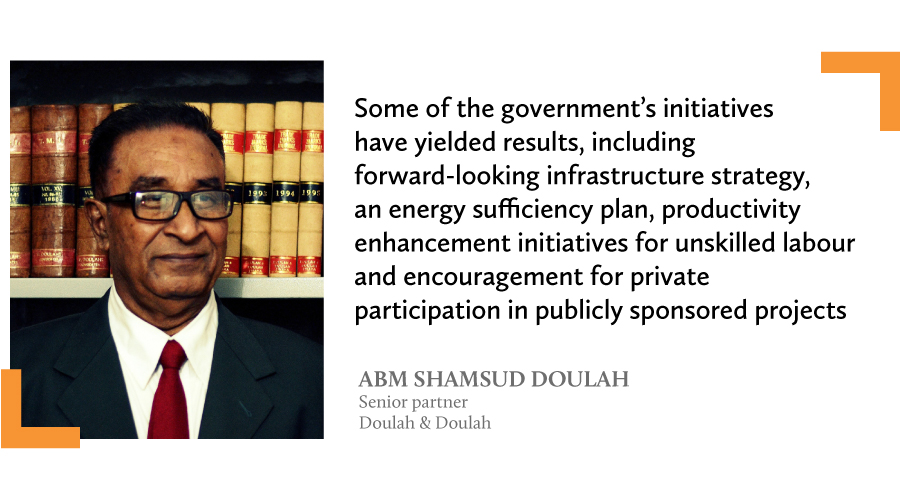Often overshadowed in such a powerhouse neighbourhood, this populous nation has scripted an unlikely economic success story, creating lucrative opportunities for pioneering foreign investors. Miao Sha reports
Most would be reaching to bring any iconic endearing image to mind that portrays Bangladesh, a nation more often in the past associated with struggle and hardship. Yet this relatively small nation has experienced phenomenal economic growth in recent years, posting an 8.13% GDP growth rate in the 2019 fiscal year, surpassing India (4.2%) and making it South Asia’s fastest-growing economy.
More surprisingly, this impressive growth was not an aberration, but the result of sustained efforts. Bangladesh’s GDP growth has averaged 6.5% in the past decade, according to official estimates.
The World Bank, in its Bangladesh Development Update report published in April last year, says: “Sound macroeconomic policies – such as keeping the budget deficit below 5% of GDP – and resilient domestic demand have led to growth in the manufacturing and construction industries.”
Bangladesh also offers perhaps the most liberal foreign direct investment (FDI) regime in South Asia, with generally no prior approval requirements for issues of shares and almost no limits on foreign equity participation. The bulk of the country’s exports consist of ready-made clothing, while a strong domestic agricultural sector is another pillar of the economy.
BEHIND THE SUCCESS
“One of the key factors [of Bangladesh’s fast-growing economy] is the political stability,” says Shahwar Nizam, a partner of DFDL Bangladesh, a full-service international law firm in Dhaka. “We have had the same government in power for more than a decade, which has given much confidence to foreign and domestic investors.” Sheikh Hasina, the longest-serving prime minister in Bangladeshi history, has held office since January 2009.
ABM Shamsud Doulah, the senior partner at Doulah & Doulah, a full-service law firm established in 1965, also partly attributes Bangladesh’s success to political stability. “Some of the government’s initiatives have yielded results, including forward-looking infrastructure strategy, an energy sufficiency plan, productivity enhancement initiatives for unskilled labour and encouragement for private participation in publicly sponsored projects,” says Doulah.

You must be a
subscribersubscribersubscribersubscriber
to read this content, please
subscribesubscribesubscribesubscribe
today.
For group subscribers, please click here to access.
Interested in group subscription? Please contact us.




























